Faces of climate activism
Lauren Caldwell
Student climate activists are standing up for the future of the planet. From left to right, Tanya Santos, Louise Michel, and Silas Crocker. The text on this image was edited on after the photograph was taken,
“Our futures are at stake,” said 16-year-old leading climate activist Greta Thunberg in October. Brought to action by hopes and fears, teenage activists are the leaders of today’s environmental movement. In September, youth from all around the world walked out of school to show their support for environmental action. The worldwide strike reached Lowell, where students risked unexcused absences to protest for the planet. Within the San Francisco Unified School District, students have been taking up the fight in the face of inaction from administrators. Katherine Melvin, APES teacher and Union Building Committee Leader, credits student effort for all of the recent environmentally conscious changes at Lowell, such as water bottle refill stations and unpackaged cafeteria forks. “I think Lowell has a unique power: we have a number of bright, motivated, intelligent students,” she said. Melvin believes students are creating the kind of cultural shift needed to save the environment. In this article, we profile some of the Lowellites doing just that.
Silas Crocker
“Climate change is the farthest thing from a long-term threat at all,” said senior Silas Crocker. “It is the [biggest] threat in all of our lifetimes, it is the only threat that has ever faced the human race that is all-out extinction at its worst.”
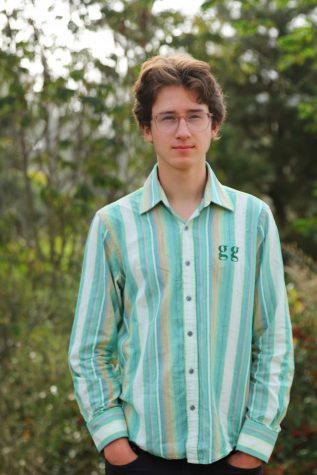
Senior Silas Crocker wearing a one-of-a-kind thrifted shirt that he designed to represent his environmental campaign, Go Greenish. As a part of his campaign, Crocker thrifts, prints, and sells shirts to raise money to combat climate change.
Facing what he considers to be the conceivable end of the world, Crocker sometimes feels that all of his efforts for his own education and future success are meaningless. “There are times when I sit in class, [and] I’m literally frozen,” he said. “I can’t write anything on my paper because the work I’m given is just so trivial.”
This isn’t the first time that Crocker has faced a threat to his future. In June 2019, Crocker’s world was shaken when doctors found a golf ball-sized aneurysm in his brain. Told he might not make it out alive, he underwent a successful 15-hour intensive surgery. Before his surgery, Crocker had long feared for the state of the environment; however, it was easier for him not to act. After he was forced to confront his own mortality, he decided that the imminent danger of climate change wasn’t something he could put off for any longer.
Crocker is now an environmental activist. Following his surgery, it only took two weeks for Crocker to start his environmental campaign, Go Greenish. “I stopped procrastinating and went on to make that shit happen,” he said. Dedicating a few hours each night, Crocker quickly finished the campaign website he had been working on for over a year. Now, Go Greenish is in full swing, with a goal of making sustainable living accessible for everybody. On his website, anyone can make a pledge to pick up sustainable habits, such as using reusable containers for their lunch once a week or committing to a part- or full-time vegetarian lifestyle. After holding a table that promoted his campaign at the September 2019 Climate Strike, Crocker had a live count of over 150 pledges.

Crocker’s campaign website allows anybody to take a simple pledge towards sustainability, such as biking to work or school for an adjustable period of time.
Crocker’s campaign is still gaining momentum. The same weekend as the climate strike, Crocker spoke about Go Greenish at a climate event to a few hundred people and on KPFA radio 94.1. He is growing his campaign by connecting with other groups that share his goal. “I think that really hit home for a lot of people that it’s not that hard, first of all, to change something small about your life — to be more sustainable — and it’s not that hard to tell somebody else, so it spread from there exponentially,” he said.
While his campaign has been building support, Crocker is no stranger to negativity. He said that people find it a lot more comforting to make fun of climate activists than to admit that the environment is facing destruction. “The fact that people trash on Priuses, the fact that people say that vegetarians are annoying, the fact that people say that Greta Thunberg is annoying, it’s terrible…and it’s so see through,” Crocker said. When he initially released his campaign on social media, someone messaged him saying that he was just a “clout chaser,” calling him a hypocrite for occasionally driving a car. “It’s honestly thoroughly disappointing that people could possibly care so little about such an important issue,” Crocker said. “But I’m not perfect and that is the point of Go Greenish. Nobody is perfect and nobody can do everything and lead a perfectly sustainable lifestyle, but nobody has any excuse to not take one more step.”
Since launching his campaign, Crocker has become much more open about advocating for sustainability. Before Go Greenish existed, Crocker was uncertain about his activism and avoided conversations about the state of the environment, feeling the negative stigma surrounding it. However, after immersing himself in Go Greenish, he’s found support and respect from a lot of people. “When I became more open and said, ‘Screw it, I’m just gonna do it.’ I realized that people have accepted it a lot more warmly than I thought they would have,” Crocker said.
Sabina Lewis
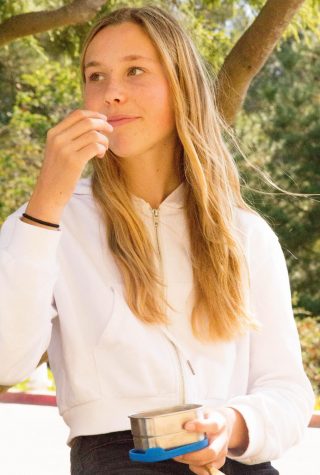
Freshman Sabina Lewis eats her lunch out of a reusable container. Along with purchasing her food in bulk, Lewis brings reusable cutlery and containers to school to reduce her plastic waste.
From the deli counter to the checkout line, almost everything the average consumer buys is plastic-wrapped or made with animal products. Both plastic and meat are part of most peoples’ everyday lives and avoiding them takes conscious effort. Over time, the impacts of these societal norms on the environment are becoming more apparent, with consumers discarding plastics that strangle wildlife and cattle farmers setting fires that destroy the vital ecosystems and oxygen-producing undergrowth of the Amazon rainforest. Now, there is a growing movement of people who are working to lessen their ecological footprints. Freshman Sabina Lewis is one of them.

Lewis and her family are attempting to lower their environmental footprint limiting their meat consumption.
For the past two years, Lewis and her parents have been trying to go plastic-free. Although corporate grocery stores are full of packaged foods, it isn’t hard to find the few stores that are conscious of their environmental impact and specialize in minimal plastic packaging. Rainbow Grocery in South of Market, Other Avenues in the Outer Sunset, and Real Foods in Russian Hill sell a variety of goods offered in bulk that customers can purchase in reusable containers from home. For Lewis, the fact that her family is actively trying to help the environment is inspiring. “It’s only one family, we’re only three people, but do as much as you can to help, right?” Lewis said. “It makes me feel good about myself because I know that I am helping the environment, because it’s so easy just to go down the easy path and not be eco-friendly, but just putting a little more effort makes a big difference.”

Metal straws are an increasingly popular replacement for the plastic straws that often miss the landfill and make it into the ocean, where they threaten wildlife.
The truth is that living plastic-free is expensive. The grocery stores in San Francisco that Lewis shops at provide compostable bags and zero-waste bulk options at a premium price point. Lewis acknowledges that she is privileged to have the financial and social resources that allow her to live sustainability. Because of this, she understands that plastic-free options aren’t accessible to many students. “[Plastic is] just right in front of you,” Lewis said. “I don’t think it’s the students’ faults themselves, the options presented to them just aren’t good enough.”
Besides being plastic-free, Lewis has been a vegetarian since she was in middle school. Unlike Lewis, her family isn’t vegetarian but only eats meat about twice a week, which is more sustainable than most families. However, twice a week is eight times a month, which is 96 more meat-based meals a year than she wishes most people would eat. A lot of people she talks to don’t feel that eating less meat would change anything. “It’s very frustrating because to me, it’s so obvious that all of this is real,” Lewis said. “It’s right in front of you. And do you still not notice it?”
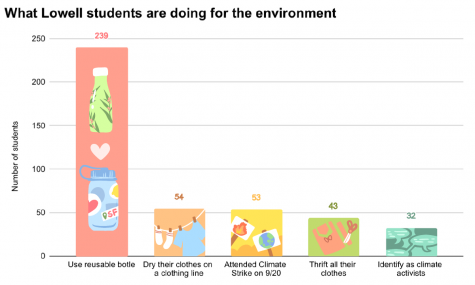
The results of a survey of 284 students in registries from every grade level.
Lewis believes that in order for people to change their ways, they need to know the science behind climate pollution. She feels that students need to know about the meat industry’s negative impacts on the environment as a result of the methane production by cattle and the amount of land that is burned or deforested to make room for cattle farms in the Amazon, which adds to the greenhouse effect. “A lot of people don’t realize how much livestock has an impact on our ecosystem,” Lewis said. She thinks that schools should do a better job educating students about how their individual actions can help stop climate change.
Louise Michel
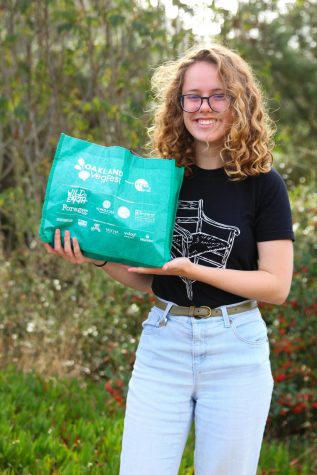
Senior Louise Michel holds up her reusable bag from Oakland VegFest, an annual vegan food festival organized by the Factory Farming Awareness Coalition (FFAC), which Michel interned with in 2018.
For senior Louise Michel, environmental activism started with construction paper and crayons. At four years old, Michel was greatly concerned by the images she saw of polar bears on melting sea ice in environmental documentaries. When her worries translated into art and posters in elementary school, Michel’s friends found her depictions of environmental woes odd. “I remember them being like, ‘Why do you always write about that?’” Michel said. “It was just something that I cared about so much.” Since elementary school, Michel has continued to express her concern for the environment. These feelings led her to become a vegetarian when she was 11 and an environmental activist last year. Now, she is trying to fully cut out dairy products to go vegan for the environment. Michel’s sustainable living has been largely supported by her family, but she understands that not everyone has the freedom to live sustainably. While she believes that lifestyle changes need to be made, she doesn’t want to force this change upon others. “I had a very easy, privileged time with eating plant-based foods. I know it’s very different and a lot harder for a lot of people,” Michel said.

Michel believes that a non-confrontational conversation about the meat industry is the best way to introduce her peers to vegetarianism and veganism.
She interned at the Factory Farming Awareness Coalition last year. As an intern, Michel delivered presentations and held events to educate people about factory farming and to empower them to make food choices to benefit the environment, animals, and their own personal health. As a member of the FFAC, Michel found a sense of belonging, as well as purpose and acceptance. “It’s a social thing,” she said. “It’s so good to be around so many people who have the same ideas as you. It really keeps you going. You’re like, ‘Oh right, I can’t give up on these people and they can’t give up on me.’”
Having found a supportive community of people leading similar lifestyles, Michel has made it her mission to reduce the social stigma surrounding vegetarianism and veganism. For her, a critical step in this cultural change is giving students access to a plant-based meal option in school cafeterias, as she feels that the district needs to give students the ability to choose. “That’s probably one of the biggest positives that [SFUSD] can do — empowering students, like, ‘Hey, you can make this decision. You have this autonomy,’” she said. She thinks that if people weren’t so easily discouraged from changing their practices, the world would look a lot different. “Even if you want to make that change but you can’t, anything still counts and don’t be discouraged because [change] does add up, really quickly,” Michel said. “If everyone who said that they wanted to make a change but they didn’t think that they would actually accomplish anything went and did that change, we would live in a different world.”
Tanya Santos
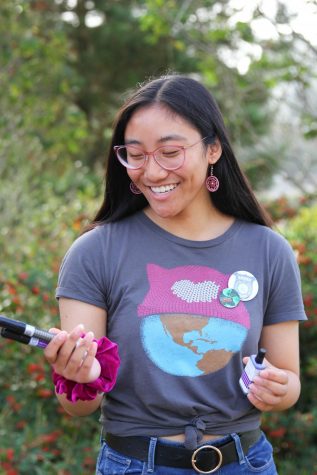
Senior Tanya Santos holds up reusable markers that she and other Eco Club members have distributed to teachers across campus in order to reduce the waste of traditional, disposable whiteboard markers. Santos and the other climate activists in Eco Club are responsible for many eco-friendly changes across campus.
Senior co-president of Lowell’s ECO Club, Tanya Santos, has her heart set on making Lowell a more environmentally sustainable community. Santos and members of the ECO Club have worked tirelessly to make it possible for the Lowell community to implement environmentally friendly practices throughout campus and the student body. “We’re looking at sustainability from the main aspects of what humans have been doing on the issue of climate change on this Earth,” she said. In order to tackle the school’s large waste output, ECO Club has started programs like their reusable marker program, which allows teachers to avoid throwing away dozens of single-use Expo markers year after year. Teachers who sign up for this program are provided with a set of whiteboard markers that ECO Club members regularly refill with ink. However, refillable markers aren’t new; a few teachers have been using them on their own for years, but the perceived hassle of refilling them caused many teachers, including biology teacher Mark Wenning, to turn away. Now that an ECO Club member visits Wenning’s classroom every week, he’s fully embraced refillable markers and is grateful for how student efforts have made it easy for him to make small changes in order to benefit the environment. Currently, 52 teachers have signed up for the club’s services, and Santos hopes that the implementation of the program will help reduce plastic waste for years to come.
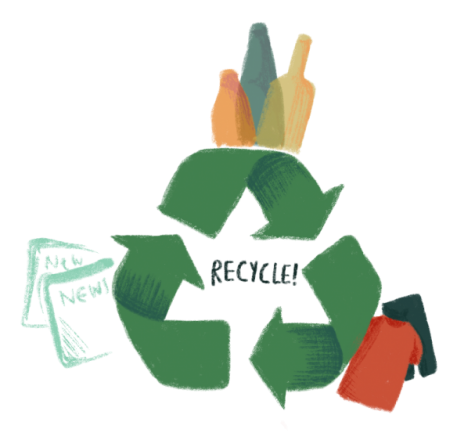
Santos and Eco Club encourage students and teachers to reduce, reuse, and recycle through initiatives like Eco-Swap, in which students trade used clothes, and their compost-bin installation program, which brings bins to classrooms around campus to urge students to think twice before sending their trash to the landfill.
Besides the reusable marker program, ECO Club also holds Eco Swap, a bi-annual clothing exchange program through which students donate unwanted clothes and trade them in for other people’s donations. The goal of Eco Swap is to increase awareness among Lowellites of the negative effects of fast fashion and to discourage a culture of wearing clothes a few times before donating them. Although people don’t usually directly throw their clothes in the landfill, 85 percent of all clothes in the United States end up in the landfill. Fast fashion is an industry that encourages this rapid consumption of low-cost, trendy clothing at the expense of polluting the environment with toxic chemicals. By encouraging shopping secondhand through Eco Swap, Santos hopes that students will make conscious decisions when buying new clothes. Any unclaimed clothes will still make it out of the landfill, as the organizers of the swap deliver all unclaimed clothes to thredUp, the largest online thrift store in the U.S., where unsold clothes get recycled. Eco Swap is bigger than Lowell. The event has inspired the founding of Needle, a campaign started by high school students at the Urban School of San Francisco to advocate for purchasing used clothing. By offering resources and guidance to individuals across the nation, the campaign aims to spread the notion of Eco Swap to other high schools.
Other changes Santos and ECO Club have made center around plastic packaging in the Lowell cafeteria. Last year, under former co-president Kristen Tam, ECO Club was successful in removing prepackaged plastic utensils from school lunches. One of Santos’ long-term goals is to install a dishwasher in the cafeteria so as to completely replace plastic forks with silverware, a system that was successfully implemented at the Ruth Asawa San Francisco School of the Arts in 2018, but lacks the necessary funding from the district. Santos believes that the district has the capacity to implement more changes to reduce its ecological footprint, but do not see it as a priority. Santos finds that students at Lowell are becoming more aware of the ever-threatening environmental crisis they will be faced with, but she feels that many are too focused on things like school and their individual futures to be taking action. This situation is distressing for Santos, as she believes that if students do not act soon, it will already be too late. “But that’s the [problem]—what future will we have if we don’t have our earth anymore?” Santos said.
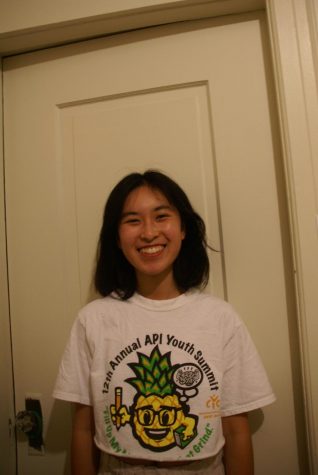

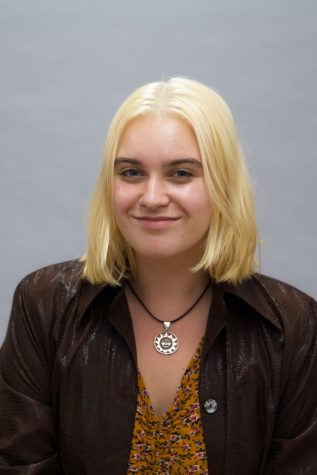
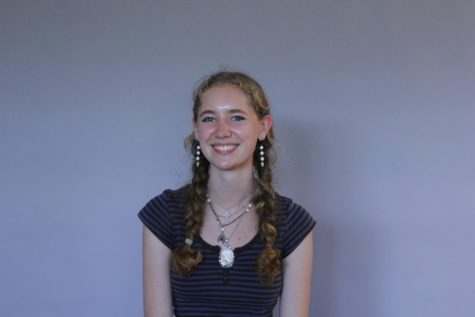
Marlena is a senior at Lowell. When she isn't at school she's probably at the lab, watching a movie, or sitting on the sidewalk listening to music (usually Björk).

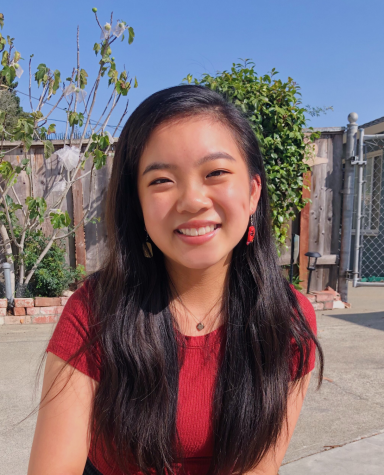


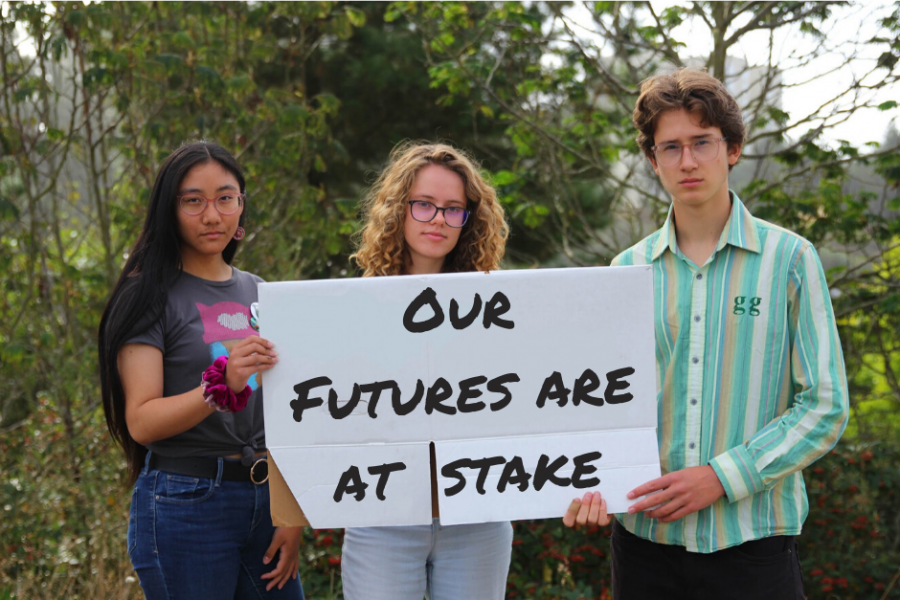
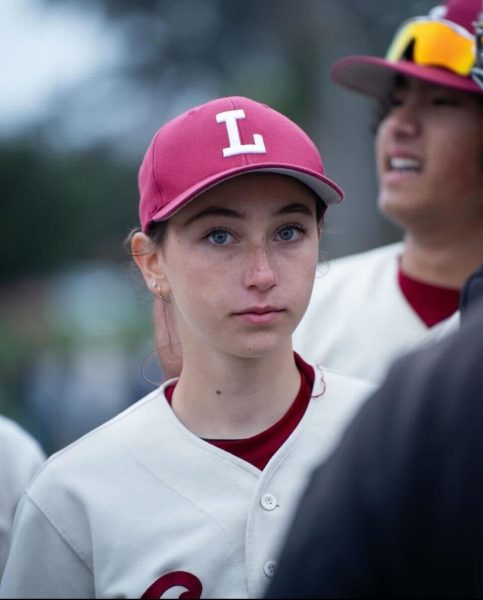

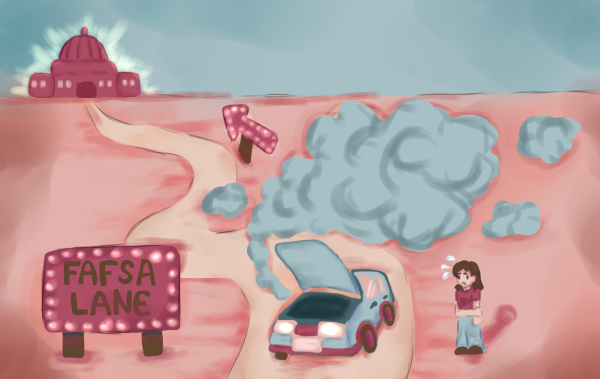
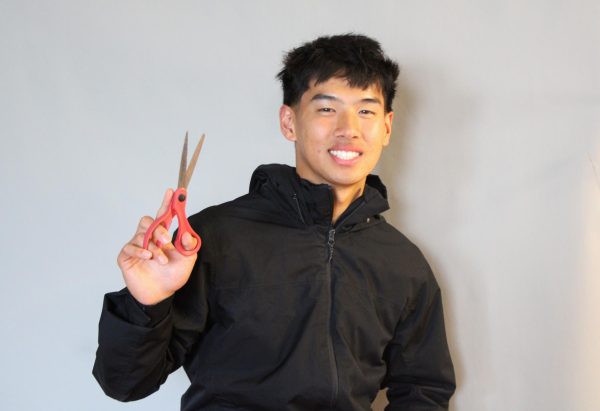

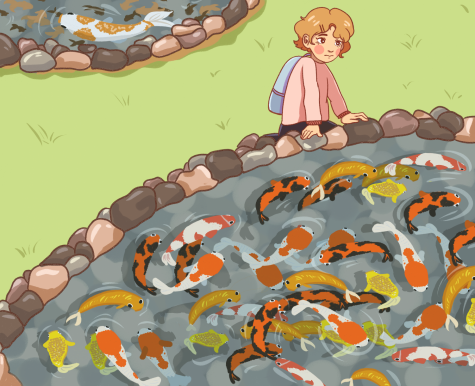

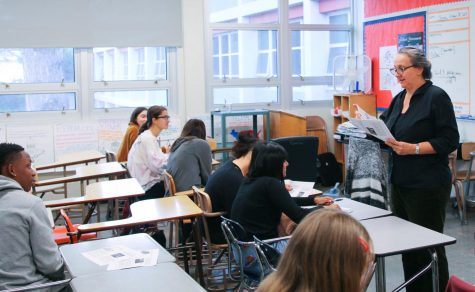
CHristopher Yip • Nov 15, 2019 at 11:59 am
I am a firm believer in change through individual and collective action, and it was at Lowell High that I really developed a deeper understanding of the environmental crises that the world faces, regarding pollution and waste. But ultimately, even the collective actions of an entire student body are nothing in the face of massive oil conglomerates or the Pentagon, which burns through millions of gallons of oil a year in the pursuit of capitalist imperialism. The U.S. military is without a doubt the world’s largest source of pollution and misery. I think it is incredibly necessary to recognize the need for immediate and radical change in our world governments. We must hold those in power accountable for the decision to mine for petroleum, to process it into non-biodegradable toxins, and to sell it to the unsuspecting masses. I firmly believe that collective organizing, indeed youth organizing, must identify capitalism as THE problem with today’s society. The oil barons and billionaires don’t care that microplastics are choking our air and our water, or that scientists predict the total collapse of the world’s ecosystems within 25 years. It would take the average U.S. citizen over 95,000 years to accumulate 1 billion USD; and even then, what are the worlds billionaires doing to prevent the climate catastrophes predicted by the worlds scientists? Nothing. They are sitting on their fortunes, ensuring that there won’t be a world for our children, not even caring that their own names will likely be forgotten in a few decades. I love the earth, and I love my fellow humans, and I wish nothing more than to see a more equitable world, where no one has to fear for their well being or health because of reasons out of their control. The bottom line is that capitalism is in-congruent with human survival. There is no room for half-measures or petty politics; this is a battle of pawns, for the highest stakes imaginable.